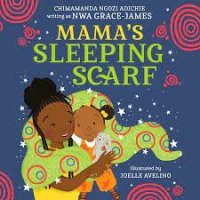A timely and timeless picture book about immigration, refugees, acceptance, and tolerance from a New York Times bestselling author.
A young Parsi girl in modern times comes from India to live in America with her extended family. She feels so alone-like she's not wanted-but then is told a story by her aunt about a group of Persians who were ousted from their country due to religious persecution and who sailed to the Western shores of India in search for a new home.
The king of the region in India did not want to let them in and explained (using a glass of full milk) that the community was simply too full to let them in. The Zoroastrian king of the Persian refugees then dumped some sugar into the milk, stirred until it dissolved, and explained to the king that not only would his people integrate well into their society but they would also help sweeten their culture. The Indian king lets them in and they prosper. And, in the end, the young girl realizes that she, too, is being accepted by those in her neighborhood and that she can finally start feeling a part of this new American society.---from the publisher
48 pages 978-0762495191 Ages 4-8
Keywords: immigration, refugees, acceptance, accepting others, tolerance, family, belonging, fitting in, diversity, diverse books, 4 year old, 5 year old, 6 year old, 7 year old, 8 year old, multicultural, India, South Asian author, Asia, tolerance, Every Child
*****************
As a young Parsi girl in India, I often heard the ancient legend of how my Persian ancestors arrived in India. It was a beautiful story: Fleeing religious persecution, a small group of Persians traveled to India, asking for refuge. The local ruler, a Hindu, met them at the shore, determined to refuse their request. But there was a language barrier, and so he filled a glass with milk and pointed to it as a way of saying that the land was full and couldn't accommodate the strangers. Then came the part that always gave me goosebumps: The Zoroastrian priest dissolved sugar into the glass of milk. His message was clear: Like sugar in milk, our presence in India will sweeten your lives.
Of course, at that time, the political dimensions of the story escaped me--the fact that this was ultimately a story about refugees and immigration. Rather, what dazzled me was the wit and quick thinking of the Zoroastrian priest and the warm-hearted generosity of the Hindu ruler who allowed the Persians to stay. And I was charmed by the story’s moral—that it is up to each one of us to make life sweeter for the people around us. My parents always emphasized this part of the social compact—how a tiny ethnic minority, their numbers never terribly large, played an outsized role in the development of modern India. So many Parsis (as they came to be known in India) went on to become household names—the industrialist J.R.D. Tata, the music conductor Zubin Mehta, the nuclear physicist Homi Bhabha, the writer Rohinton Mistry. Each one was fulfilling the ancient promise made by that Zoroastrian priest to the benevolent Hindu king, almost a millennium ago.
But the story really hit home when I came to America at the age of twenty-one to go to grad school. I knew no one in America and so, it was up to me to decide who I would be and what kind of a life I would lead. The Sugar in Milk story served as a blueprint for my life as a new immigrant, reminding me of my responsibilities to what eventually became my new home and country. But America, too, had a responsibility toward me, and in those days, it took that obligation seriously. Much as that Hindu king had welcomed my ancestors to India centuries earlier, America, too, greeted me with open arms.
These days, I see literature as serving a similar function—a way to sweeten the lives of those who come to it needing comfort and connection and community. I hope my little book touches the hearts of young readers, but I hope it also softens the hearts of older ones, reminding us of the fact that this world becomes a better place when we greet foreigners with warmth and kindness, and when we rejoice in the glorious diversity of the human race. Because that stranger in your midst? He or she is your future best friend. ---from Thrity Umrigar and her publisher Running Press Kids






